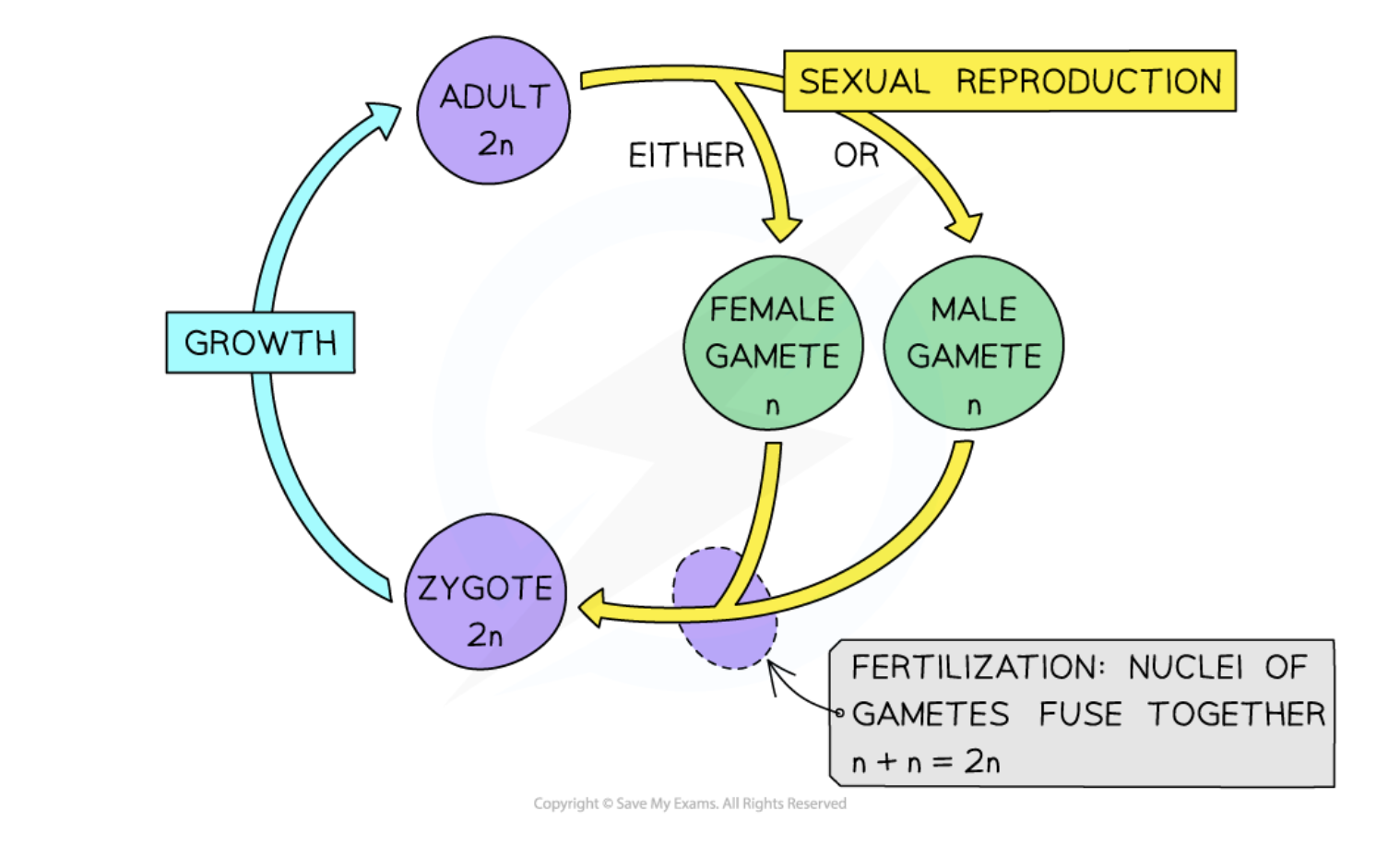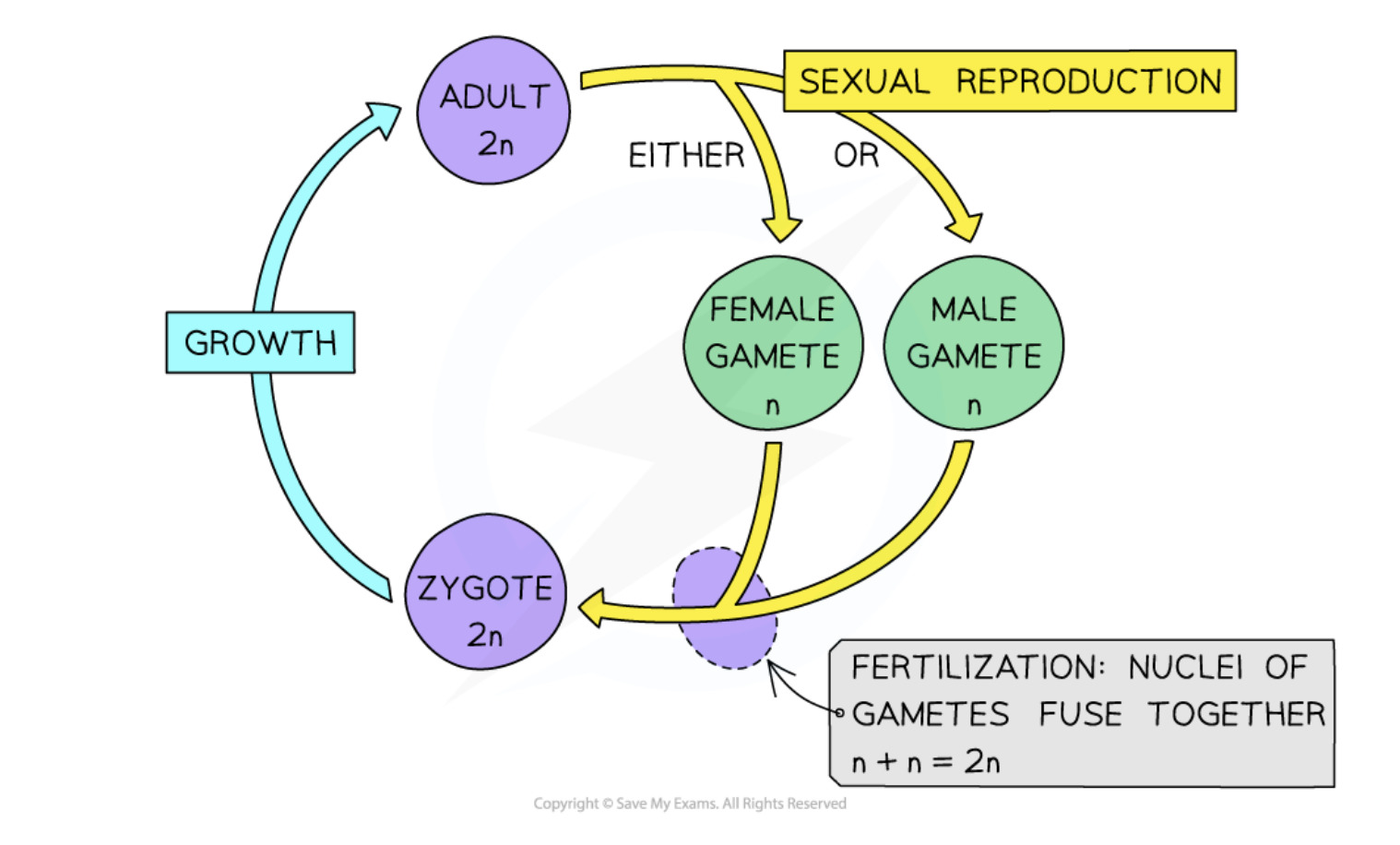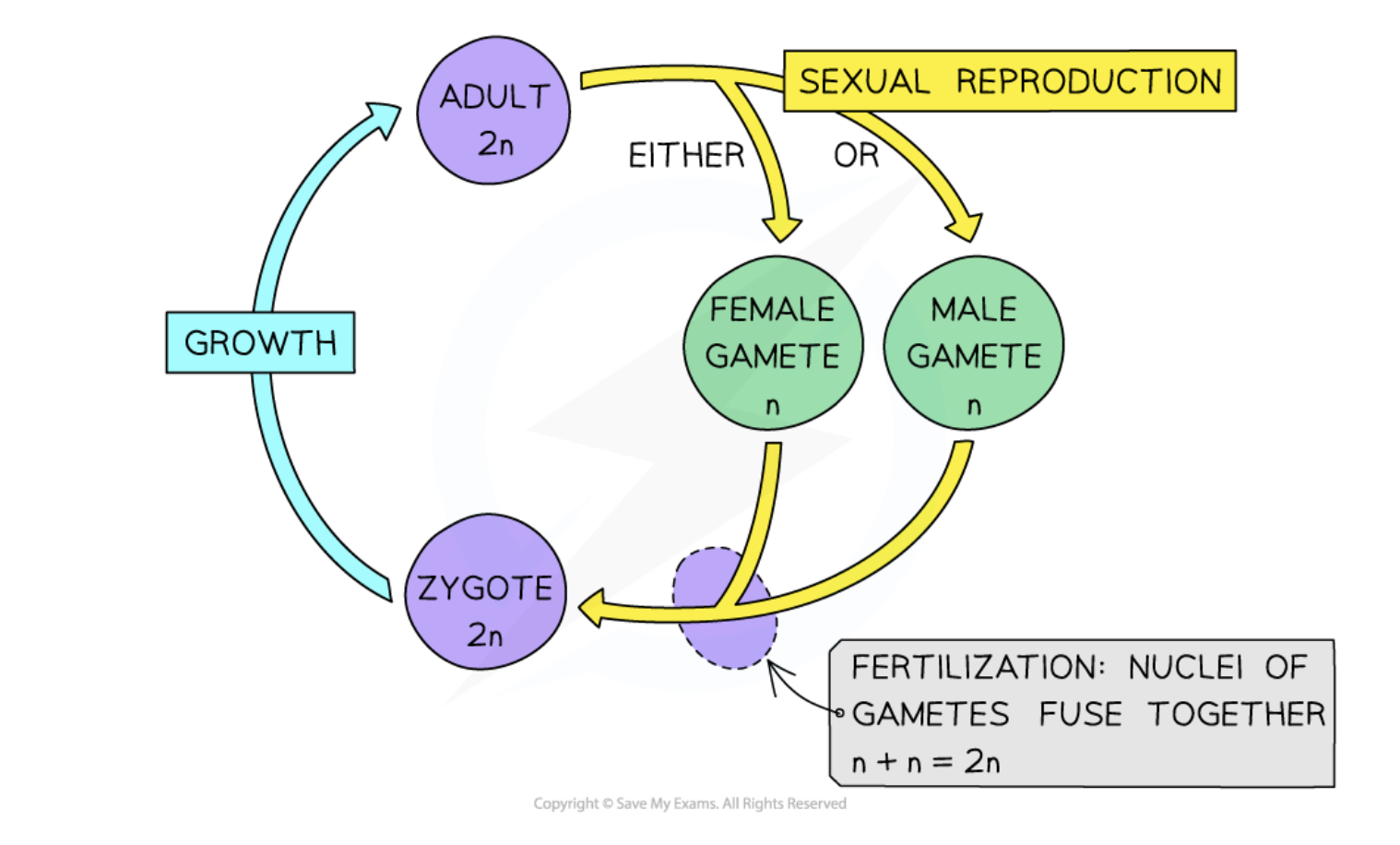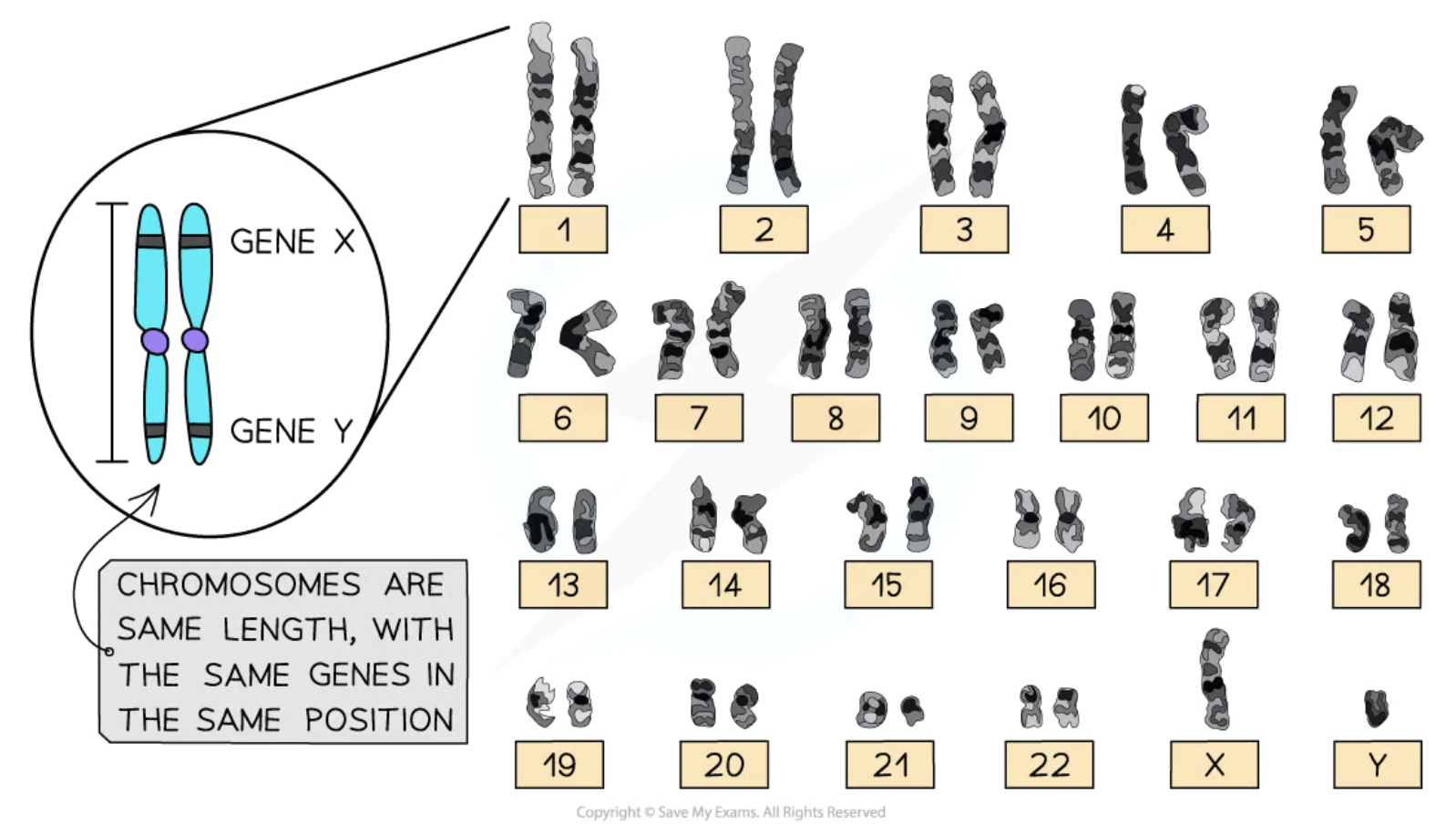(CIE A2 Biology) Ploidy + homologous chromosomes (based on SaveMyExams revision notes)
1/9
There's no tags or description
Looks like no tags are added yet.
Name | Mastery | Learn | Test | Matching | Spaced | Call with Kai |
|---|
No study sessions yet.
10 Terms
Diploid Cell
A cell that contains two complete sets of chromosomes, represented as 2n.

Haploid Cell
A cell that contains one complete set of chromosomes, represented as n.

Gametes
Haploid cells involved in sexual reproduction; for humans, the female egg and male sperm.

Reduction Division
The first cell division of meiosis that reduces the chromosome number from diploid to haploid.
Homologous Chromosomes
Chromosomes that have the same genes in the same positions, but may carry different alleles.

Zygote
A fertilized egg formed when the nuclei of two gametes fuse, containing a diploid number of chromosomes.
Chromosome Number in Humans
Humans have 46 chromosomes in diploid cells (23 pairs) and 23 in haploid cells.
Centromere Position
The specific location on a chromosome that holds sister chromatids together.
Alleles
Different forms of a gene that may exist at a specific locus on homologous chromosomes in a gene pair.
Meiosis
The process of cell division that produces haploid gametes from diploid cells.